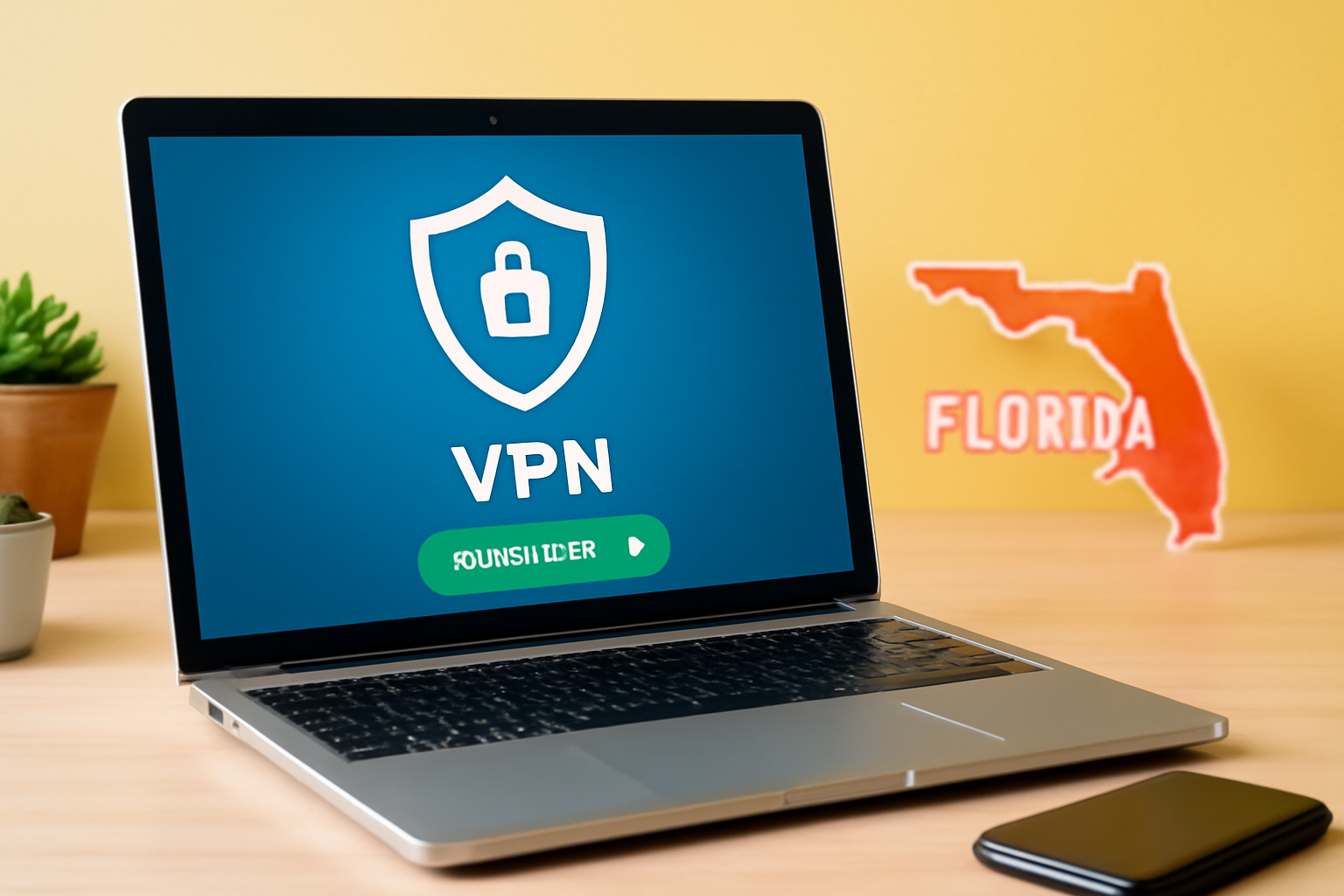
In the wake of recent legislation, Florida has experienced a dramatic increase in the demand for virtual private networks (VPNs), with an astonishing surge of over 1,000 percent. This change comes after the state implemented a block on a major adult-content platform, prompting users to seek alternative methods to access restricted material.
The Rise of VPN Demand
As one of the leading platforms for adult content is now blocked in multiple states across the U.S., including Florida, Tennessee, and South Carolina, residents have turned to VPNs as a solution. These tools allow users to mask their locations and browse the internet privately, essentially circumventing the new restrictions.
According to cybersecurity sources, the rise in VPN demand was immediate and substantial. Forbes reported that VPNMentor observed a staggering 1,150 percent increase in VPN usage in Florida shortly after the restriction was enforced on January 1st. This spike highlights the public's swift adaptation to new laws affecting their online activities.
Similar trends have been noted in other states. For instance, Utah experienced a 967 percent increase, while Texas saw a 234 percent rise following similar legislation. These figures underscore a nationwide trend as more states opt to enforce restrictions on accessing adult content.
Implications of the Legislation
The implementation of these measures has sparked a debate about privacy and personal freedom. Critics argue that the legislation is both "ineffective" and "dangerous," pointing out that requiring significant personal data for age verification poses privacy risks.
A representative from Aylo, the parent company of the affected adult-content sites, voiced concerns about the potential dangers of these laws. They argue that the requirement for adult websites to collect sensitive information from users could jeopardize their safety and lead to data breaches.
Moreover, they highlight the potential for users to simply bypass these laws by accessing non-compliant websites or utilizing technology like VPNs to maintain their online privacy. This raises questions about the practical enforceability of such legislation.
The Broader Impact on Cybersecurity
While VPNs offer a temporary workaround for users, cybersecurity experts caution about potential risks. The U.S. cyber defense agency has issued warnings regarding the use of VPNs, noting that not all services are secure. Additionally, cybersecurity firms have observed an uptick in malicious applications masquerading as VPNs, posing further risks to users seeking privacy online.
These developments have prompted discussions about finding a balance between protecting minors and preserving adult privacy rights. As states continue to navigate these complex issues, the conversation around digital privacy and internet freedom remains as pertinent as ever.
Looking Ahead
As the debate continues, it's clear that the landscape of internet privacy is evolving. With personal freedom and online safety at the forefront, understanding the implications of such legislation is crucial for both policymakers and the public.
In the meantime, users seeking to maintain their privacy must remain vigilant and informed about the tools and services they choose to employ. As the demand for VPNs continues to rise, ensuring that users are equipped with accurate information about safe internet practices is more important than ever.
This issue not only affects those in Florida but also points to a broader national and global conversation about the rights and responsibilities of internet use. As technology continues to advance, so too must our understanding and approach to digital rights and privacy.
Join the discussion and share your thoughts in the comments section below. Remember to maintain a respectful dialogue as we explore these important topics.
Related Posts
Triumphant Trans Woman Wins Legal Battle and Inspires Others to Stand Up for Their Rights
Breaking new ground: a landmark victory in transgender rights After battling in courtrooms and enduring endless challenges, Diana Portillo, a transgender woman, has secured a monumental victory in her decade-long fight against workplace discrimination. The result? Nearly $1 million awarded in a historic settlement. But this isn't just a win on paper—it represents a powerful precedent in combati [...]
Pride Month in Latin America: Protests and Demands for Equality
**Celebrating Pride and advocating LGBTQ+ rights in Latin America** Pride Month in Latin America was a lively mix where celebration met activism. Communities united, not just throwing a party but making a stand—demanding equality and pushing governments toward better protection and rights recognition. Throughout Latin America, pride events erupted in marches and cultural displays, each with a c [...]
Transgender Erasure Actions Implemented by National Park Service
```html Trump administration's impact on national park service and transgender recognition The Trump administration made notable moves in undermining transgender representation, which included directing agencies like National Park Service not include "T" and "Q" when they refered “LGBTQ” in any official communication. This move seems part a broader plan by this administration aimed at reducin [...]